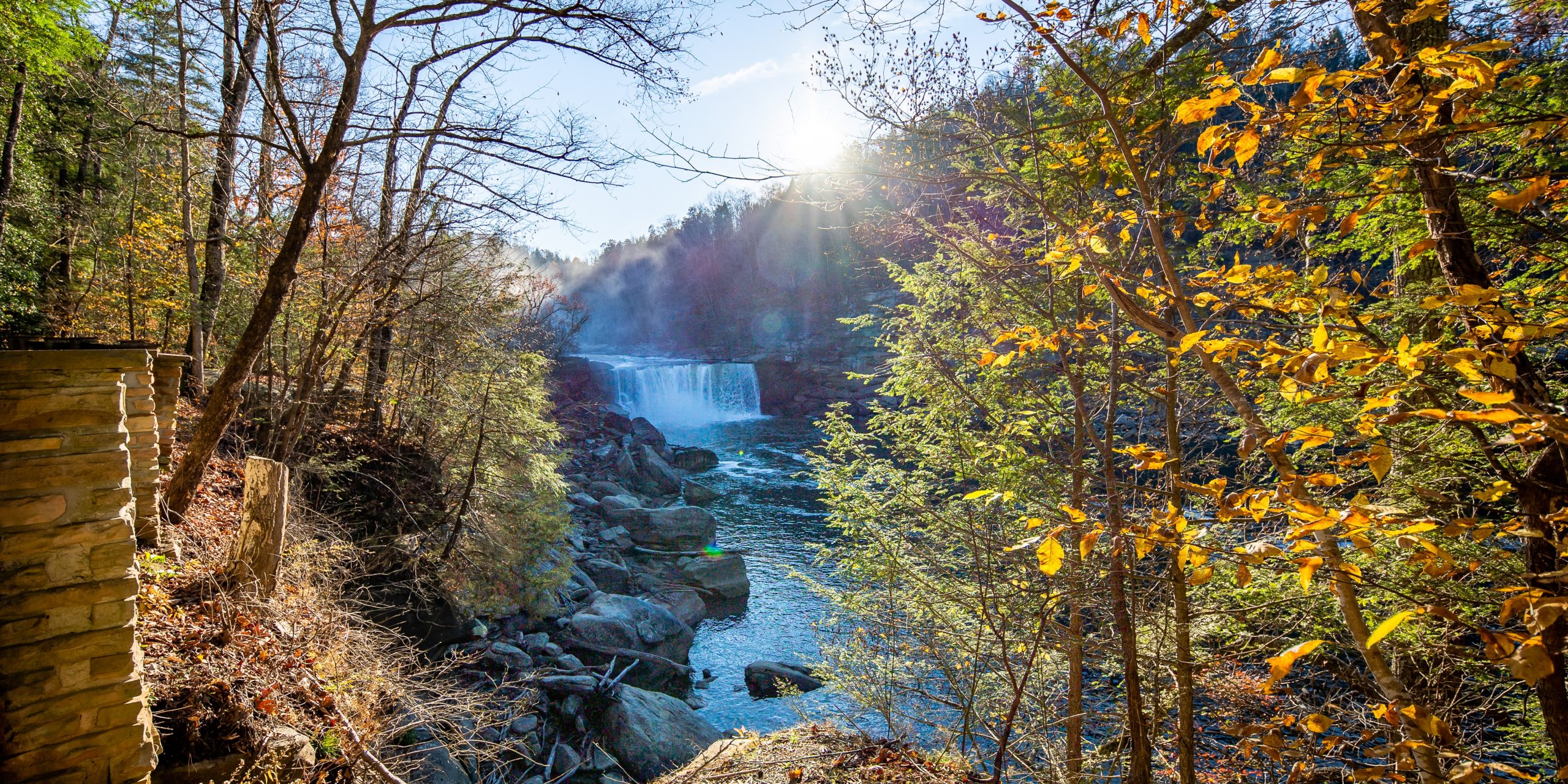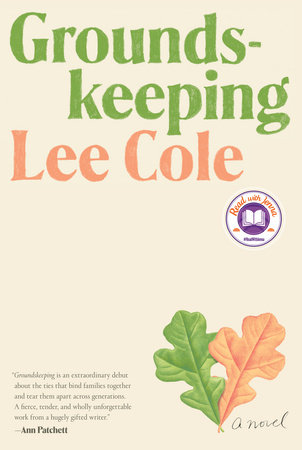In thinking about this reading list, I considered writing about “overlooked” Kentucky writers. I realized, quickly, that this would be redundant. Even someone like Wendell Berry, who is well known in Southern literary circles, is far from a household name. To make any list of Kentucky writers is to call attention to a kind of “underground” literature. There are those who know, of course, that Wendell Berry is one of the 20th century’s finest writers, but if you ask someone in New York about him, they’re liable to say, “Who?” Likewise for Bobbie Ann Mason. The writers from Kentucky who have managed to transcend the limits of the label—Hunter S. Thompson, Barbara Kingsolver, Robert Penn Warren—have tended to turn, in their work, toward America at large, thereby avoiding the connotation of “regionalism.”
I thought a lot about this regionalism as I worked on my novel, Groundskeeping. At one point, the protagonist, Owen, is asked whether he’d like to be thought of as a Kentucky writer or an American writer. His answer is that Kentucky is America, that it’s microcosmic; its struggles and conflicts are America’s struggles and conflicts. Our country’s most antipodal figures, Abraham Lincoln and Jefferson Davis, were born in Kentucky, and the battles they fought then, both real and ideological, are still with us.
And so, my hope for this list is that readers will turn to the writers I’ve named, not just to learn about Kentucky, but to learn about America—to see our perennial strife reflected in art.
C.E. Morgan
C.E. Morgan is perhaps best known for her novel The Sport of Kings, an epic saga about family, historical trauma, and the beauty and danger of horse racing. But I first encountered her work eight years ago, when I read All the Living. It’s a spellbinding story about a young woman who goes to live with a man who’s inherited a remote tobacco farm in Kentucky. They must struggle not only against the elements, but to understand one another and their fierce, divergent desires. The language is archaic at times, its rhythms almost Biblical, but it never misses the mark, and brings to life the foothills of Appalachia with vivid clarity.
Frank X. Walker
We owe the term “Affrilachia” to Frank X. Walker, and his first poetry collection of the same name interrogates the meaning and the legacy of Black life in Appalachia. The themes of inheritance and history come up again and again in Walker’s poems, specifically the way we inherit narratives that turn out to be false. Two of his most powerful books, When Winter Come and Turn Me Loose: The Unghosting of Medgar Evers, are retellings of historical narratives that challenge our assumptions and elevate forgotten voices. It’s this motivation—to challenge, to disclose the story beneath the official story—that characterizes Walker’s career. His poems are so important because they treat Kentucky—and by extension, America—as a complex, layered place, a place that can’t be reduced to a simple, univocal story.
Bobbie Ann Mason
It’s always been a mystery to me why Bobbie Ann Mason’s name is not listed alongside Raymond Carver’s and Ann Beattie’s in discussions of the 1980s’ short story renaissance. Her collections Shiloh and Love Life are as good as anything the decade produced, and her novel, In Country, is in many ways the definitive story of America’s grief post-Vietnam. Thematically, she often wrote about the confrontation between rural America’s agrarian past and the rapidly metastasizing consumerism of the 1980s. As their culture and traditions disappear, Mason’s characters in small town western Kentucky must reexamine what they believe and how they define themselves. For a sampling of her work, including excerpts from her more recent novels, Patchwork, released in 2018 with an excellent introduction by George Saunders, is a good place to start.
bell hooks
Since her death last year, bell hooks’ work has enjoyed a much-deserved renewal of interest and appreciation. Like many of the writers in this list, the story of her career is a story of coming full circle. She left Kentucky as a teenager, pursued opportunities “out in the world,” and found herself longing to return later in life, to put down roots in the state where she was born. Her collection of essays, Belonging: a Culture of Place, traces this spiritual and artistic journey. All About Love: New Visions, reprinted in 2018, braids many of the wide-ranging interests and themes of her career into one beautiful, culminating text. It’s a book not just about love, but about division and power, and the possibilities for redemption.
Chris Offutt
I think of Chris Offutt as a story writer, first and foremost. Kentucky Straight and Out of the Woods were touchstones for me. The stories are rooted in the concept of home and what it means to belong. Many of his characters try to escape Kentucky, or dream of escape, but find themselves tethered, for better or worse, to the place where they were born. My Father the Pornographer, his memoir from 2017, is a funny, tender book about his father’s career as a writer of erotica. It has, like all of Offutt’s work, a deep generosity and a willingness to look past human foibles. But more than this, it’s a book about the irreducible mysteries of family life and the complicated meaning of home.
Silas House
In the past two decades, Silas House has written some of the finest contributions to Kentucky literature. His ear for dialogue, and for Kentucky’s unique patterns of speech, is unmatched, and his characters are always treated with tenderness and respect. There’s a lot of empathy in his work, but it’s never sentimental. In Southernmost, from 2018, he tells the story of a small town preacher who shelters two gay men in the wake of a flood and must face the judgment and ire of his congregation. It becomes a story about family, acceptance, and forgiveness—themes that run throughout House’s body of work. But it’s the notion of belonging, and what it means to belong to a place, that seems to preoccupy House more than anything. As far as themes go, I can think of none more central to the experience of living in Kentucky.
Crystal Wilkinson
Crystal Wilkinson was named Poet Laureate of Kentucky in 2021, and her collection Perfect Black came out the same year. It tells, in fragments, a heart wrenching coming-of-age story about Black girlhood. Her language is often elegiac, but precise, never lapsing into easy nostalgia, and she captures so well how growing up can be a magical, strange, and often frightening experience, especially for a Black girl in the South. One of the things I admire most about her writing is the attention paid to Kentucky’s natural landscapes – not as inert backdrops, but as real, living points of contact. Nature has the power to transform us in her work, to show us glimpses of the mystical embedded in the everyday.
Wendell Berry
No list of Kentucky writers could exclude Wendell Berry, who has written passionately—for more than half a century—about nature, agriculture, and the decline of rural communities in America. There are so many books by Berry I could recommend. The Unsettling of America is probably his most important work—a fierce indictment of industrial agriculture and the powerful interests that have pillaged our earth, destroying local cultures in the process. But a more complete, and perhaps accessible, compendium of his essays can be found in The World-Ending Fire, which came out in 2017. As the title suggests, Berry has become a kind of prophet among ecologists and advocates for sustainable farming, and his writing has apocalyptic undertones which were not always obvious to me until I read his essays collected in this career-spanning anthology. His message, repeated again and again, is that we’ve lost our way, that there’s a better life available to us beyond consumption and waste, beyond the plunder of nature. It’s a message that transcends the borders of his home state of Kentucky and addresses the world at large. One can only hope that we take it to heart.

